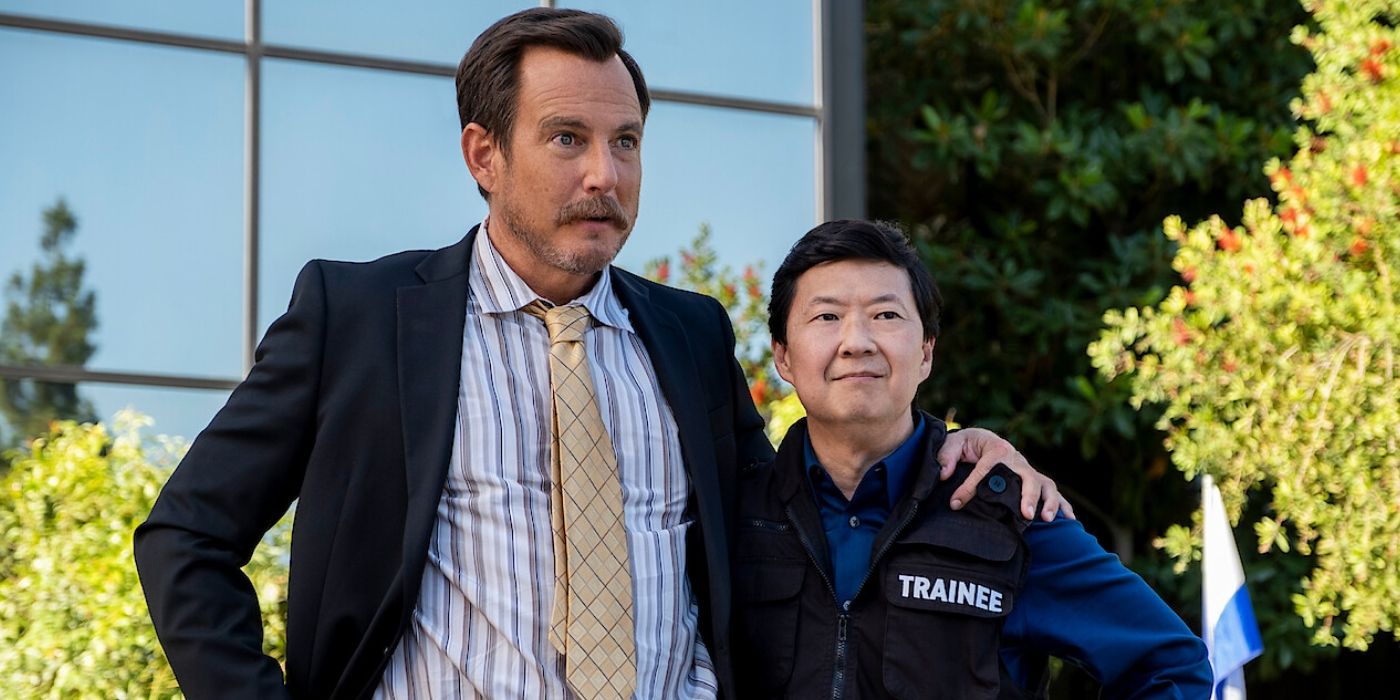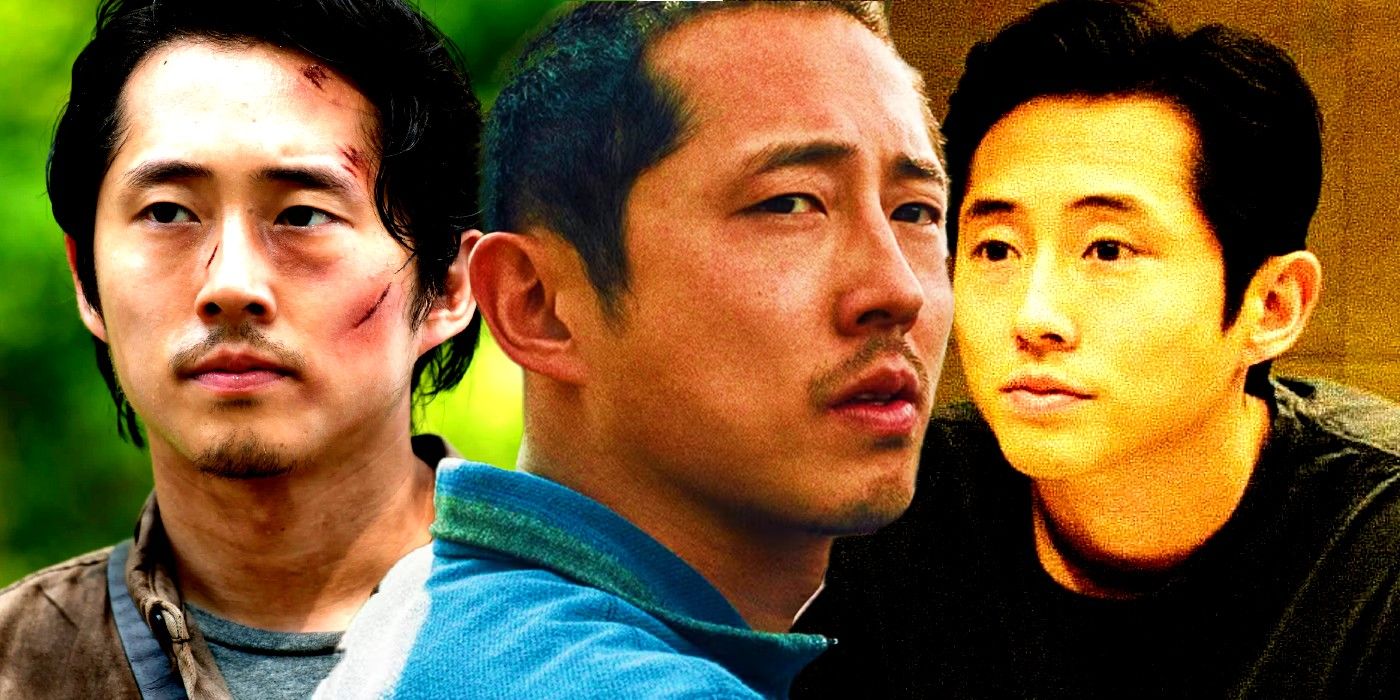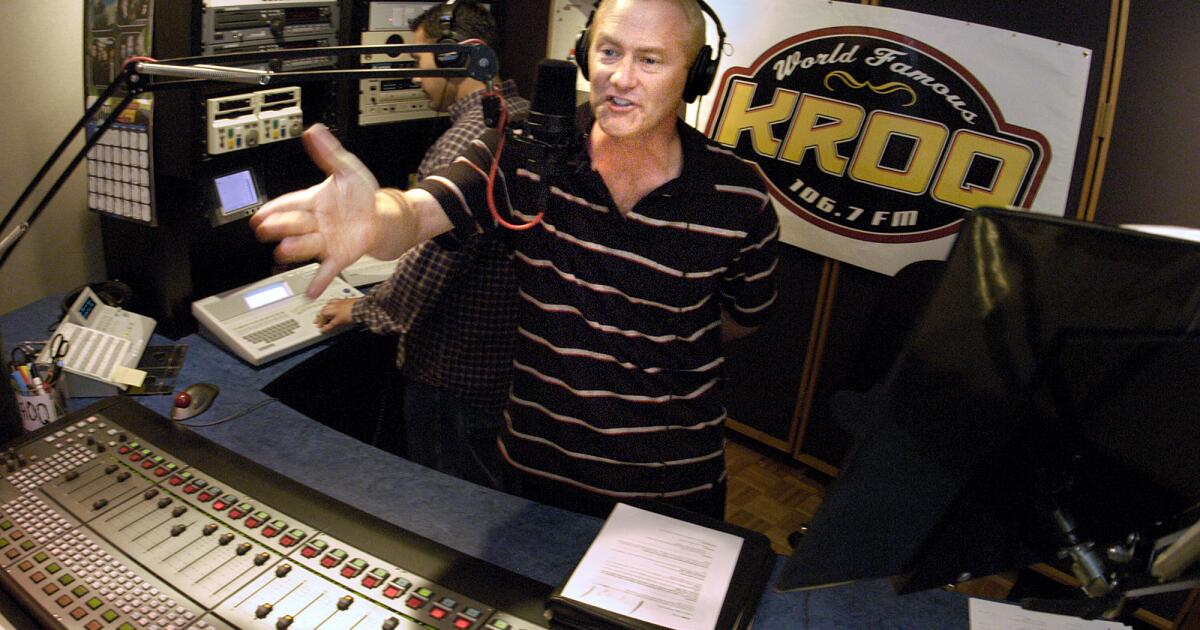“originals” have always been something of a semantic riddle. Sometimes the platform funds the project from scratch; sometimes it swoops in post-festival with distribution rights and a red N logo. Either way, the result is the same: the show or movie gets shuffled into an algorithmically blurred carousel, released with little fanfare, and forgotten by the next weekend. This is especially true for , a genre that has become increasingly elastic — encompassing animated puberty fever dreams (Big Mouth), mental health dramedies (Feel Good), and fourth-wall-shattering sketch experiments (The Characters, I Think You Should Leave). Netflix’s comedy offerings are often funnier, weirder, and more emotionally resonant than their bigger-budget siblings — and yet the best of them rarely trend.
Part of the problem is structural. Comedy is disposable by design, meant to be quoted, clipped, streamed, and then replaced. But in Netflix’s high-volume ecosystem, where content is endless and attention spans are short, even the most inventive comedies can vanish before their second season is greenlit. This list gathers the outliers — the cult shows, genre-benders, and wildly original voices that deserve a second look. Whether it’s the surreal self-loathing of Lady Dynamite, the nihilist optimism of Bo Burnham: Inside, or the absurdism of Murderville, these titles don’t just deserve your attention — they’re proof that comedy, even in the age of streaming fatigue, is still one of the most radical forms of storytelling.
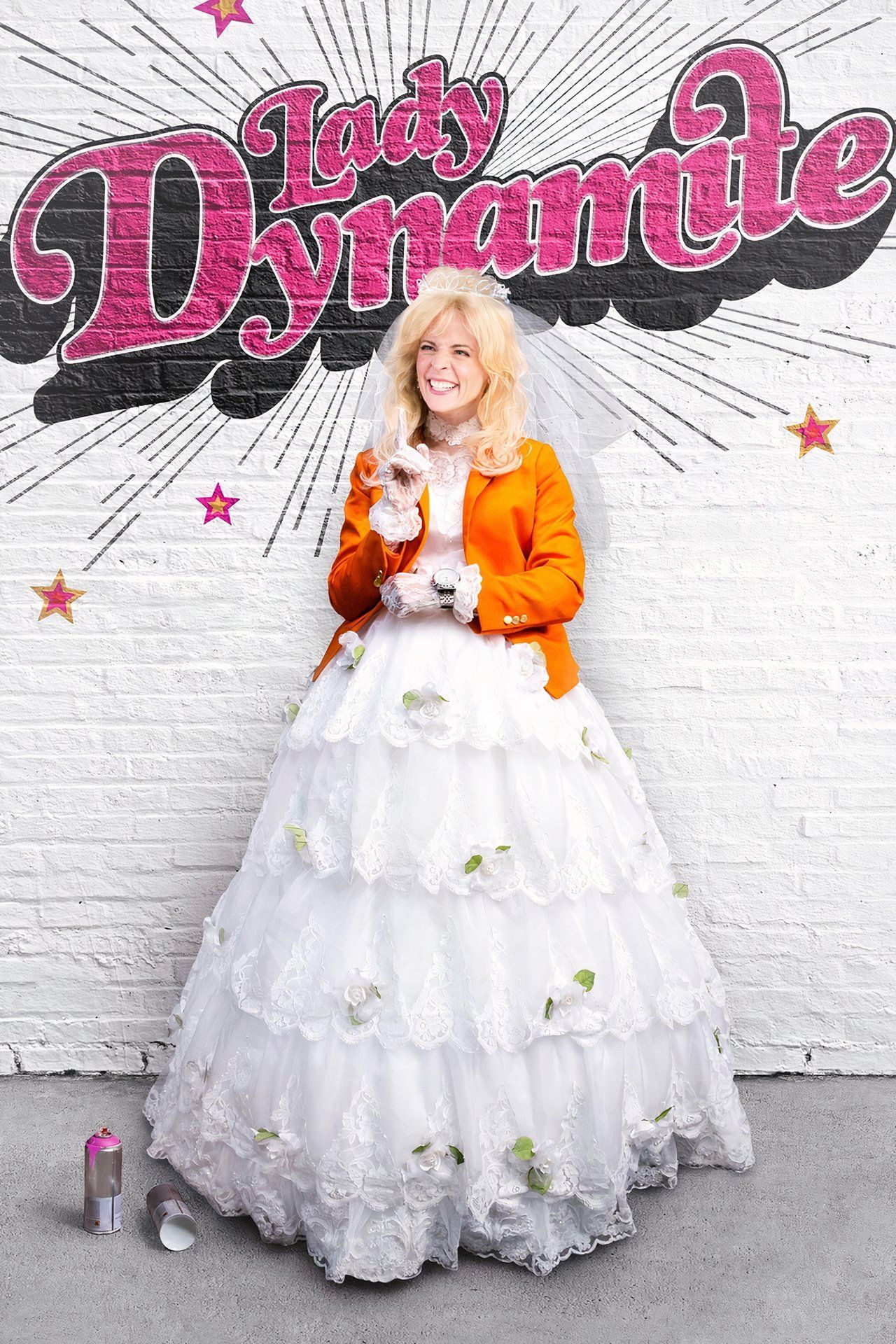
There has never been — and may never be again — a comedy quite like . Created by Pam Brady (South Park) and Mitch Hurwitz (Arrested Development), and starring stand-up icon Maria Bamford as a semi-fictional version of herself, the show takes mental illness, showbiz failure, and female rage, and spins them into a kaleidoscopic, deeply self-aware meta-sitcom. It’s jarring, nonlinear, and intentionally disorienting — a show about someone trying to put their life back together told through a structure that mimics the very fractures she’s recovering from. The humor is both high-concept and lowbrow, emotionally raw and postmodern in the same breath.
What makes Lady Dynamite so unforgettable is its total refusal to play by the rules — of comedy, of television, of how we’re allowed to talk about being unwell. The show jumps between timelines (Past, Present, and “Duluth” — a sort of emotional purgatory), and blends animated sequences, soap-opera logic, and surreal detours to make Maria’s internal state visible. It’s about showbiz, yes, but also about healing, boundaries, disappointment, and reassembling your own narrative under capitalism. Bamford is astonishing — vulnerable, deranged, kind, and wildly funny — and the show never uses her mental illness as a punchline. Instead, it uses comedy as a kind of narrative reclamation, offering a formal rebellion that mirrors the personal one at its center.
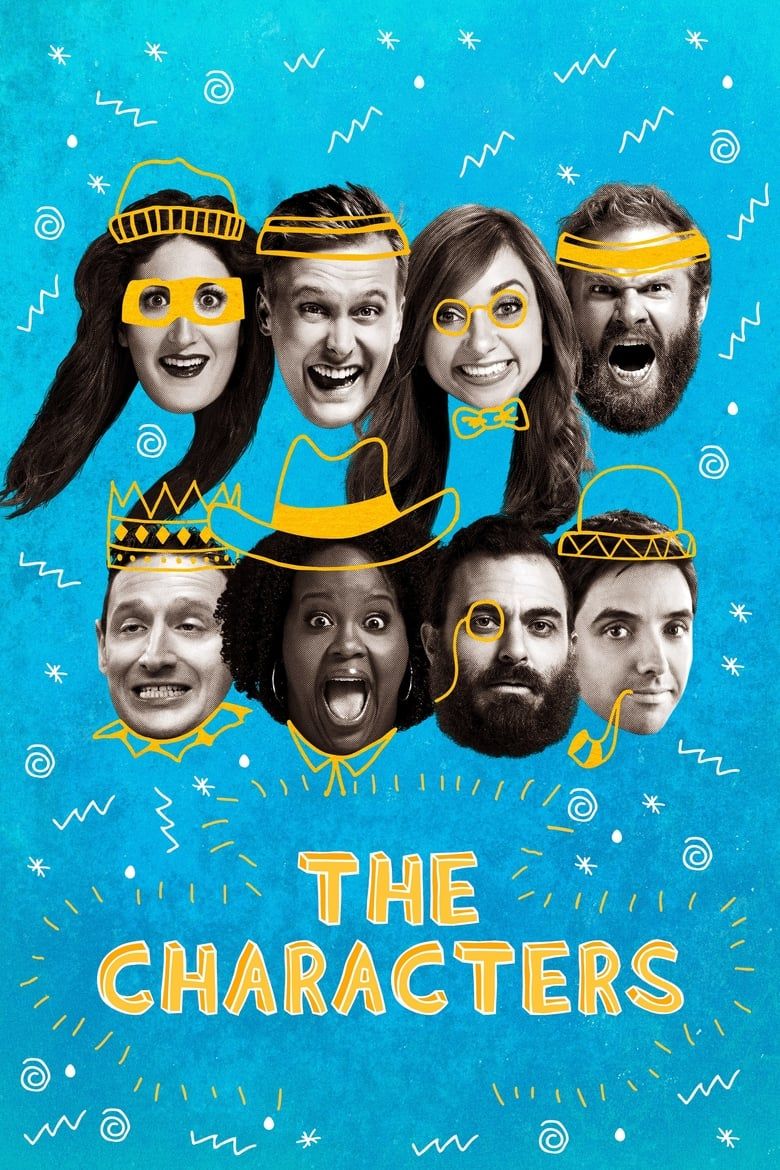
is the kind of show Netflix doesn’t make anymore — and arguably never knew what to do with in the first place. The premise was deceptively simple: eight episodes, eight up-and-coming comedians, each given a blank slate and 30 minutes to build whatever fever dream they wanted. What resulted was a series of wild, unforgettable showcases that felt like early-career mixtapes from future cult stars: Lauren Lapkus doing deranged party mom bits, John Early channeling Eurotrash chaos, Kate Berlant melting into anti-capitalist performance art. The vibe is somewhere between Mr. Show, Kids in the Hall, and an experimental sketch night in a Brooklyn basement.
What made The Characters feel radical — and still does — is its total disregard for coherence or polish. These weren’t audition tapes for SNL; they were maximalist, surreal, sometimes alienating experiments in form and tone. Tim Robinson’s episode is particularly prophetic, offering an early glimpse of the unhinged brilliance that would later define I Think You Should Leave. These sketches aren't meant to go viral — they’re meant to push. They revel in discomfort, non-sequitur, and the comedy of implosion. Netflix didn’t renew it, and maybe it never meant to. But The Characters captured a moment in alt-comedy where weirdness wasn’t just tolerated — it was the whole point.
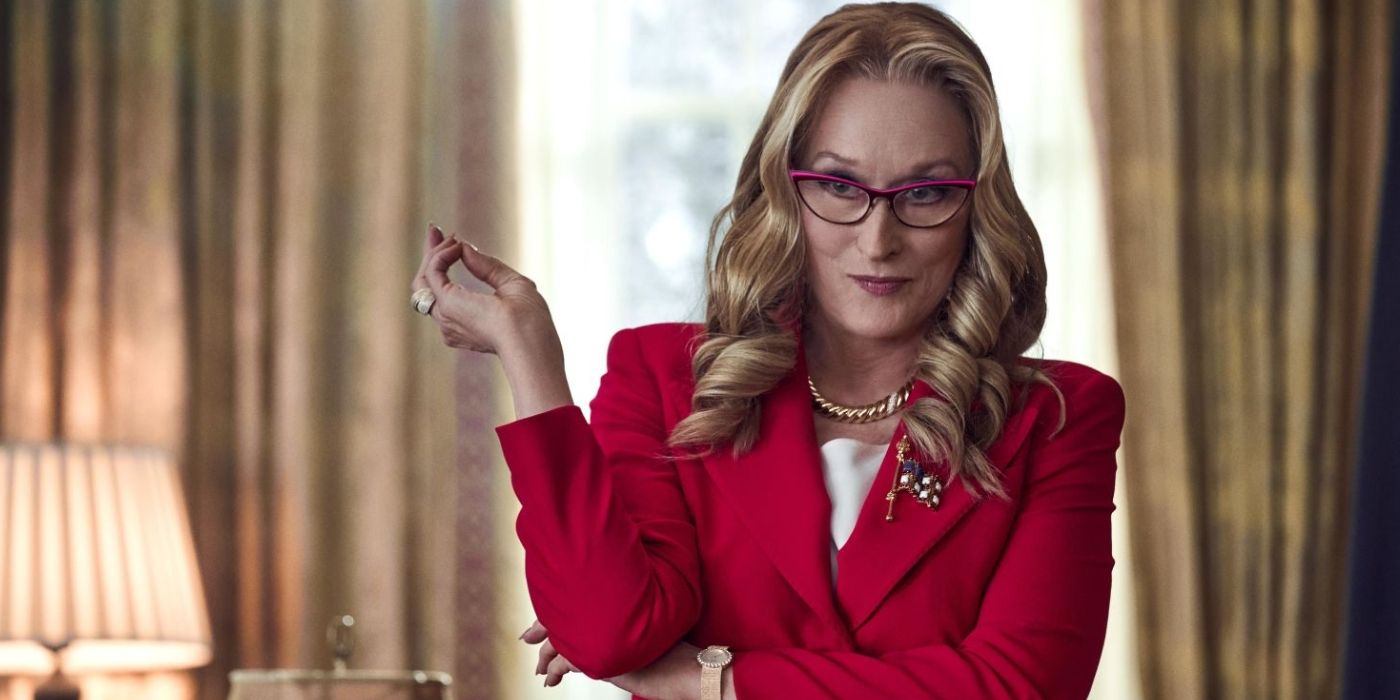
Related
Netflix's Top 10 Funniest Original Comedy Films So Far
One of the genres in which Netflix has impressed the most is comedy. Here are its funniest movies so far.
In Paul Rudd plays both a burnt-out ad man and his perkier, optimized clone — a premise that sounds like Multiplicity but quickly reveals itself to be something much darker and sharper. The show unfolds as a low-key sci-fi comedy, but it’s really a slow-burn existential crisis in sitcom clothing. Created by Timothy Greenberg, the series uses genre minimalism to explore midlife despair, ego fragmentation, and the terrifying realization that even your better self might not be enough. Rudd, playing both roles with deft tonal variation, gives one of his most nuanced performances — charming and hollowed-out in equal measure.
What’s striking about Living with Yourself is how deeply it understands the paradox of self-optimization — the way late-stage capitalism demands transformation while offering nothing in return. The “better” version of Rudd’s character isn’t kinder or more authentic — he’s just more productive, more likable, more suited for a world obsessed with the illusion of happiness. The show is deeply funny, but it’s also sad in a way few comedies let themselves be — unafraid to ask whether being replaced by a more polished version of yourself is liberation or a form of death. In a media landscape flooded with high-concept comedies, Living with Yourself managed something quieter and stranger: a doppelgänger tragedy disguised as a workplace farce.
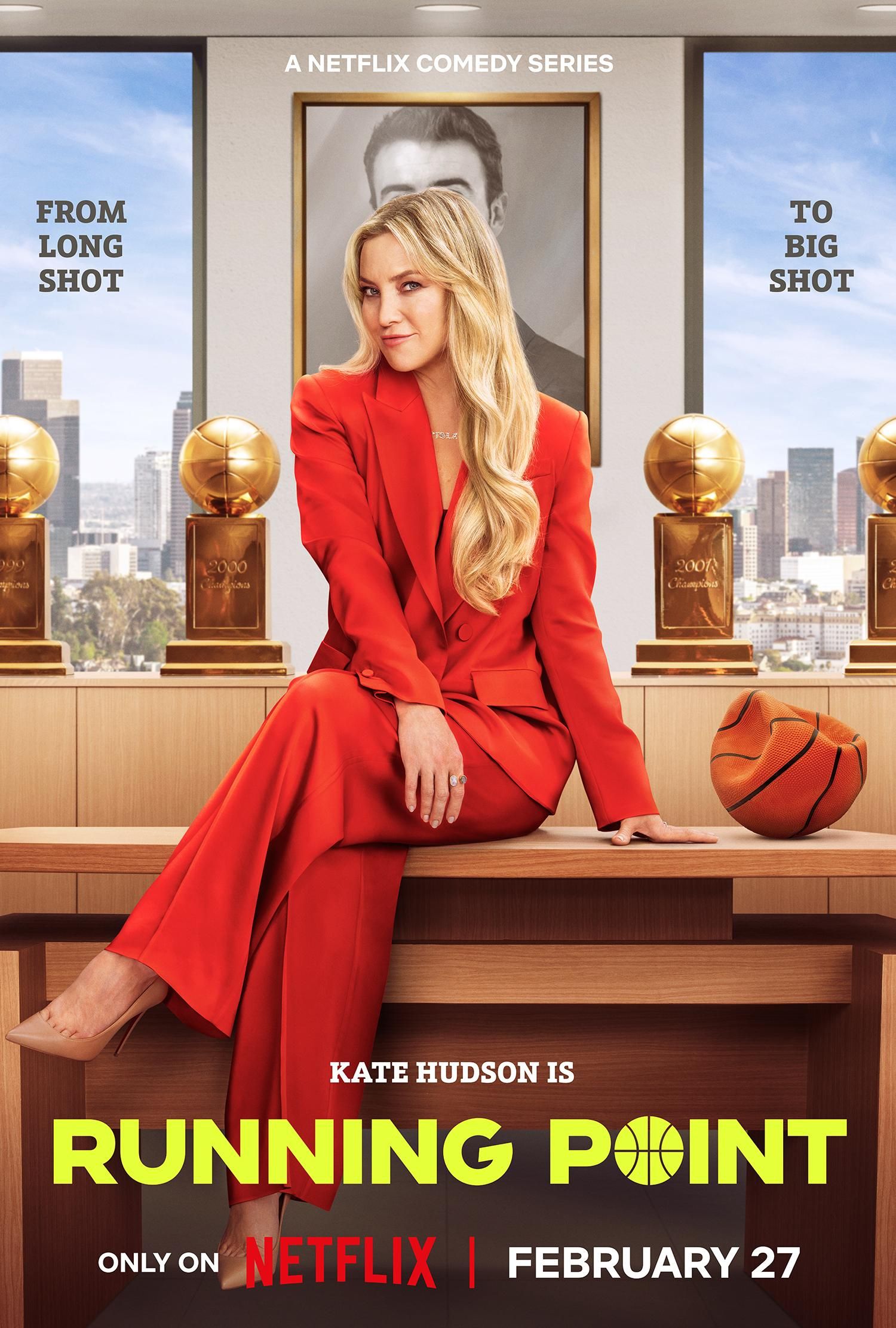
is Netflix’s latest attempt to do something rare: a genuinely fun workplace comedy that isn’t afraid to be broad, stylish, or led by a woman with a little too much edge for network television. Created by Alyson Fouse (Big Shot) and starring Kate Hudson in her first regular TV role, the series follows Isla Gordon, who’s unexpectedly promoted to president of a professional basketball team — a job she never wanted, in a world still skeptical of her right to be there. Hudson plays the role with fizzy competence and a simmering panic beneath the blazer. Think Veep by way of Ted Lasso, but with sneakers, salary caps, and PR disasters waiting around every luxury suite corner.
Hudson has the charisma to carry a series like this, and if early buzz is any indication, the show has the potential to sneak up on viewers the way The Bold Type or Superstore once did: deceptively light, secretly smart, and far more progressive than the marketing suggests. What makes Running Point so promising — and likely to be criminally overlooked — is how it leans into genre without apology. It’s sports-adjacent, yes, but it’s really a comedy about female leadership under a microscope, about legacy hires and impostor syndrome, and about how success for women in male-dominated spaces often comes with an impossible fine print.
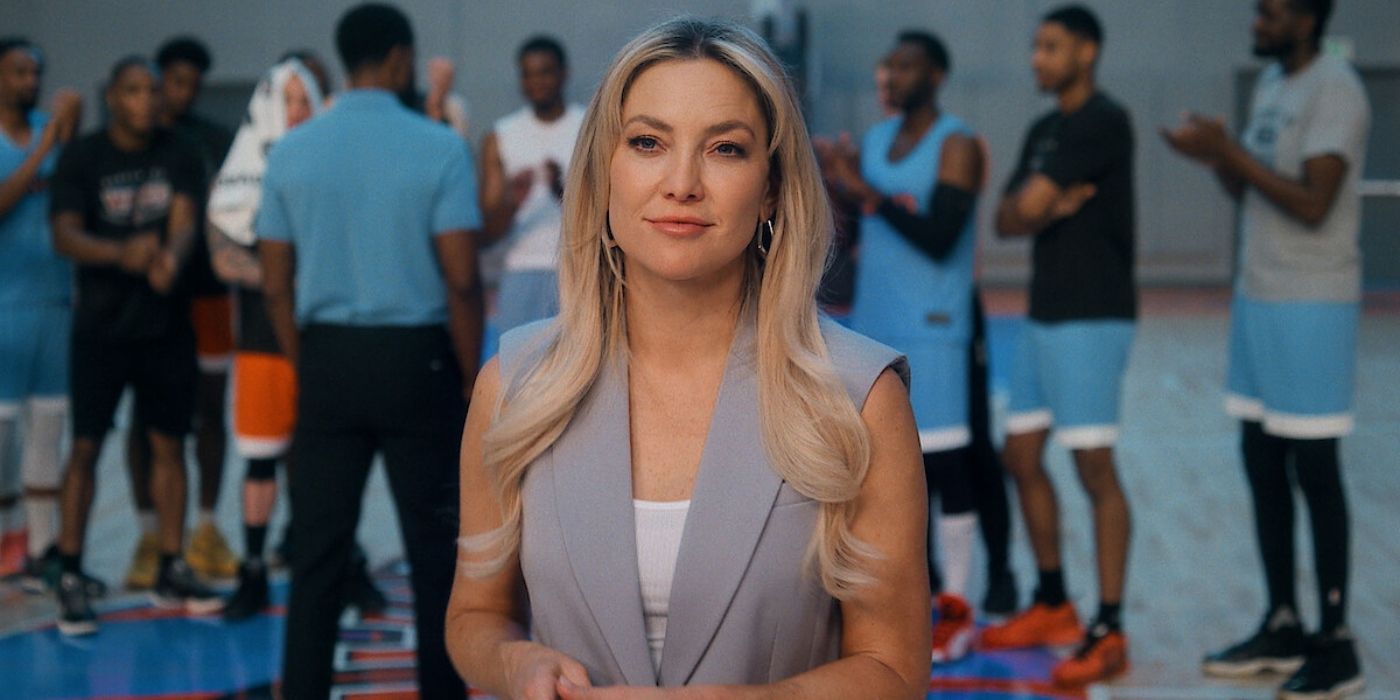
Related
'Running Point' Scores a Season 2 Layup
Kate Hudson's 'Running Point' is officially coming back for Season 2. Here's everything we know about it!

Mo
- 2022 - 2024
- Netflix
- Slick Naim
- Sophia Lear, Adel Kamal, Azhar Usman, Iturri Sosa
- Mo Amer, Ramy Youssef
is the kind of show that Netflix doesn’t know how to promote — a low-key, genre-blurring comedy that blends refugee narratives, immigration bureaucracy, surreal visual gags, and deadpan street-level humor with grace and bite. Co-created by Palestinian-American comedian Mo Amer and Ramy’s Ramy Youssef, the show follows Mo Najjar as he navigates undocumented life in Houston while juggling family obligations, side hustles, PTSD, and a deeply American sense of rootlessness. It’s a comedy of contradictions — grounded and absurd, warm and jagged, political and deeply personal.
What sets Mo apart is its ability to layer trauma and absurdity without ever flattening either. Amer’s performance is wry and magnetic — a man caught in systems that are both hilariously broken and spiritually devastating. The show occasionally breaks into magical realism (a pet parrot hallucination, a silent syrup baptism), giving its comedy a mythic texture that’s rare in immigration narratives. Mo doesn’t preach; it improvises, hustles, stumbles, and survives. It’s a distinctly American story told from a vantage point we rarely see — and it’s all the funnier, and more necessary, for how lightly it carries its own depth.
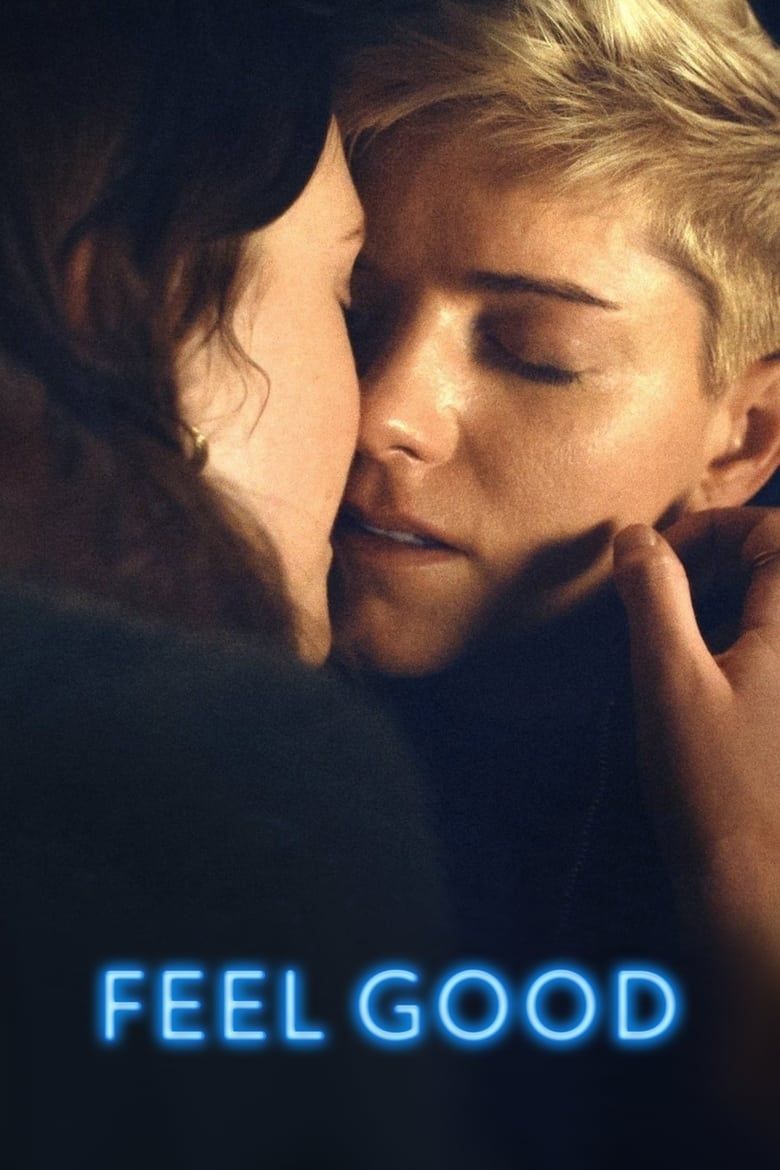
Feel Good
- 2020 - 2020
- Channel 4
- Luke Snellin
- Mae Martin
is one of the most emotionally intelligent and stylistically nimble comedies Netflix has ever quietly buried. Co-created by and starring Canadian comedian Mae Martin, the series is a semi-autobiographical dramedy about addiction, gender identity, love, and the limits of personal transformation. Set in Manchester and co-starring Charlotte Ritchie as Mae’s ambivalent girlfriend George, Feel Good is the kind of show that refuses to resolve itself into redemption arcs or trauma porn. It’s messy and vulnerable, deeply funny, and radically intimate — the kind of storytelling that could only have come from someone both inside and outside the system they’re trying to interrogate.
ne moment it’s a rom-com with jokes about secondhand leather jackets; the next it’s confronting buried abuse, addiction relapse, or gender dysphoria with a kind of gentle precision. Martin is a rare performer who can move from biting sarcasm to raw emotional openness in the span of a line, and the show treats their gender fluidity not as a plot twist, but as a lived reality. What makes Feel Good exceptional — and still too under-discussed — is its tonal elasticity. It’s also one of the best queer love stories on television — not because it’s idealized, but because it lets love be confusing, asymmetrical, and hard-earned. In a sea of slick, empty Netflix content, Feel Good is the rare show that actually does.

Beef
- April 6, 2023
- Netflix
- Hikari
- Alice Ju
On the surface, is a revenge comedy about a road rage incident that spirals into psychological warfare between two deeply frayed strangers. But what Lee Sung Jin created is something far more layered — a stylish, genre-bending character study disguised as an anxiety spiral. Starring Steven Yeun and Ali Wong in career-best performances, the series unpacks rage, class, shame, and intergenerational trauma in a way that feels equally Shakespearean and Vine-worthy. It's not “funny” in the conventional sense — it’s deeper, weirder, and more volatile, swinging between absurdity and emotional collapse with breathtaking precision.
What makes Beef so addictive — and so radical — is how it uses comedy as a delivery system for existential dread. Every episode escalates in a way that feels like a panic attack wrapped in prestige TV packaging, but underneath the elegant cinematography and artful direction lies a beating heart of desperation. Both Danny and Amy are trying, and failing, to make sense of their emptiness — and the series has enough compassion to let them be monstrous, hilarious, and quietly heartbreaking. That a show this bold came from Netflix at all feels like a glitch in the algorithm. That it resonated? Proof that audiences are more than ready for stories that bleed.

Related
Beef Review: A Shockingly Perfect Netflix Series
Steven Yeun and Ali Wong play enemies in this TV masterpiece about lies, road rage, class warfare, and the meaning of everything.
is the kind of premise that sounds like a chaotic sketch pitch until you realize: oh no, this works. Each episode pairs a rotating guest star — from Kumail Nanjiani to Annie Murphy — with Will Arnett’s perpetually exhausted detective, Terry Seattle, to solve a murder. The twist? The guests aren’t given a script. They improvise their way through each absurd interrogation, trying to play it straight while surrounded by planted clues, collapsing scenarios, and increasingly unhinged characters. It’s part murder mystery, part improv gauntlet, and part social experiment — like Whose Line Is It Anyway? but with a body count.
Arnett plays the perfect straight man in a world that keeps breaking him, and the pleasure of watching guests try (and fail) to stay in character is its own kind of catharsis. What makes Murderville magical isn’t just the format — it’s how much the show delights in its own absurdity. The show doesn’t take itself seriously, which is precisely why it works: it’s comedy that invites failure, that relishes discomfort, and that feels like a genuine antidote to over-rehearsed, algorithm-friendly sitcoms. It’s loose, weird, and infectiously fun — a reminder that sometimes the funniest thing you can do is let the structure fall apart.
If you’ve ever wondered what Monty Python would look like filtered through chaotic Australian millennial energy and raised on absurdist internet culture, is your answer. The sketch comedy trio — Mark Samual Bonanno, Broden Kelly, and Zach Ruane — bring their cult stage presence to a Netflix series that explodes the idea of what sketch TV can be. Each episode is a maximalist carnival of recurring gags, meta riffs, unhinged musical numbers, and deeply committed nonsense. It’s aggressive, anarchic, and often completely baffling — which is exactly the point.
What makes Aunty Donna so thrilling — and why it deserves cult classic status — is how thoroughly it commits to the bit. There’s no punchline too dumb, no character too exaggerated, no concept too surreal to be turned into a 90-second earworm or a multi-episode callback. But beneath the chaos is a deep love of form and structure — these are comedians who understand comedy mechanics at a near-academic level, then gleefully demolish them. It’s rare for something this aggressively weird to make it to a major platform, rarer still for it to stay this unapologetically itself. You either get it or you don’t — and that’s exactly why it’s brilliant.
You’ve probably seen the memes: the hot dog suit, the coffin flop, the guy who just wants to eat his fully loaded nachos in peace. But reducing to internet ephemera misses what makes it one of the most formally inventive and emotionally resonant comedies in recent memory. Co-created by Tim Robinson and Zach Kanin, the sketch show operates on a simple premise — a person refuses to acknowledge that they’ve made a social misstep — and then explodes it into something existential, violent, and oddly tragic. The tone is unhinged, the rhythm is unpredictable, and the commitment to absurdity is total.
Robinson’s performance style is part toddler tantrum, part clown tragedy — and beneath the chaos is a coherent vision of modern alienation. Whether it's a guy yelling in a boardroom or someone trying to return a suit with fake pockets, the comedy taps into a deeply millennial (and deeply American) anxiety about fitting in, failing, and being way too much. What makes I Think You Should Leave so much more than a meme factory is its emotional architecture: every sketch is a miniature panic attack about being perceived. This is comedy as confrontation, not relief — and that’s exactly why it’s so unforgettable. The fact that it somehow ended up on Netflix feels like a beautiful, baffling glitch in the system.
